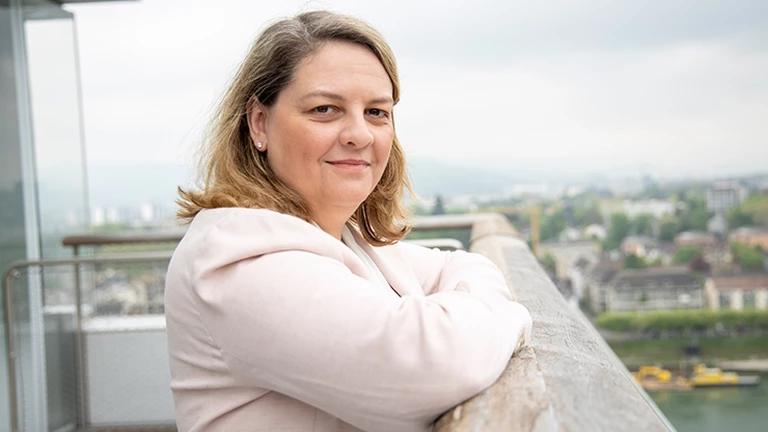Roche names Teresa Graham as its new pharma chief

Bill Anderson's replacement as chief executive of Roche Pharmaceuticals has been announced, with head of global product strategy Teresa Graham stepping up into the role.
Anderson's departure was announced in December after three years in the role as part of a top management reshuffle, to be replaced in the interim by Thomas Schinecker, who will replace Severin Schwan as CEO of the Roche group in March. Schwan, who has headed Roche for 15 years, is transitioning to the post of chairman.
Separately, Roche's chief medical officer and head of global product development Levi Garraway, has been appointed to an enlarged corporate executive committee at the group.
Like Anderson, Graham is a veteran of Roche's Genentech unit in the US, joining the company in 2005 and working her way up the ladder there to the position of vice president bio-oncology sales and marketing, before transferring to Roche's Basel headquarters in Switzerland to take up her current role in 2019.
A graduate of The George Washington University with a BBA in Business, Economics, and Public Policy, Graham is also a global board member for the Healthcare Businesswomen's Association.
Schinecker said Graham is "a great leader with strong followership. She brings strategic and scientific acumen with an excellent track record of performance. I am pleased that a person of her calibre will be our new pharma CEO."
The changes to the senior management were announced as Roche said that it was expecting revenues in 2023 to be hit by a decline in COVID-19 product sales, adding to pressure resulting from biosimilar competition to some of its legacy blockbuster products.
Group sales rose 2% at constant exchange rates to CHF 63.3 billion ($69.3 billion), including CHF 45.6 billion from pharma which rose by the same margin and a 3% increase for diagnostics to CHF 17.7 billion.
Schwan said on the company's results call that it is bracing for a CHF 5 billion loss in COVID sales this year across pharma and diagnostics on weaker demand. There was already some evidence for that in the fourth quarter, with Actemra (tocilizumab) – used to treat severe COVID-19 – down 22% to CHF 2.7 billion.
The outgoing CEO acknowledged pipeline setbacks for the group last year – notably gantenerumab for Alzheimer's disease and TIGIT-targeted cancer drug tiragolumab – but pointed to positive developments, including the launches of Vabysmo (faricimab) for age-related macular degeneration (AMD) and lymphoma therapy Lunsumio (mosunetuzumab).
"For the current year we expect solid underlying growth in both divisions, which will largely compensate for the further significant drop in sales of…COVID-19 products," said Schwan.













